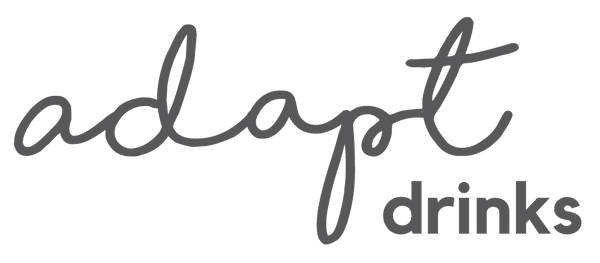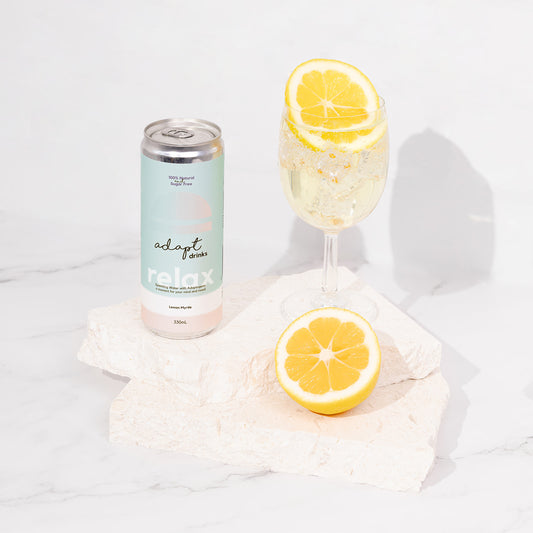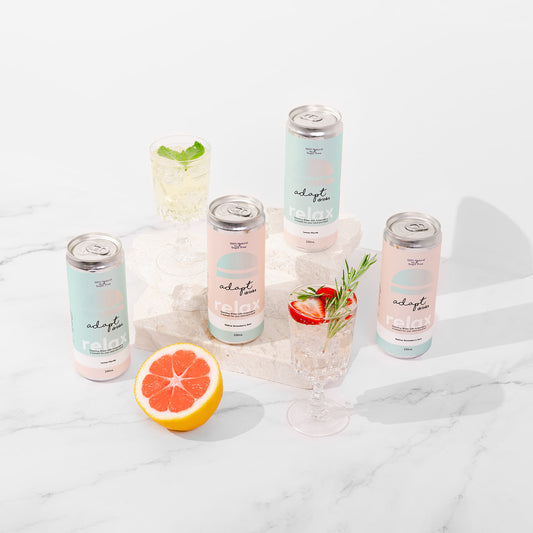Are you feeling overwhelmed by stress? If so then know that you are not alone. According to a report by the Australian Psychological Society, women consistently report higher levels of stress than men. In 2015, 35% of Australian women reported experiencing significant levels of distress, compared to 26% of men. Furthermore, women are more likely to report experiencing stress related to personal and family issues, such as finances, health, and family responsibilities.
While you may not be able to change your current circumstances that are causing you stress there are some mindset and behavioural changes you can make that help with reducing the stress you feel. Here are five books to help with stress reduction and a list of the key takeaways from each book so you can determine which book will be able to help you the most.
The Relaxation Response by Herbert Benson

In The Relaxation Response, Benson introduces a simple and effective technique for achieving the relaxation response, a natural state of deep relaxation that counteracts the negative effects of the stress response. The technique involves focusing on a word, sound, or phrase and repeating it silently to oneself while disregarding other thoughts or distractions. Benson provides scientific evidence for the benefits of the relaxation response, including lower blood pressure, reduced anxiety and depression, and improved immune function.
Key takeaways:
- The relaxation response is a natural and easily accessible technique for reducing stress and improving overall health and well-being.
- Practising the relaxation response regularly can lead to physical and mental benefits.
- The relaxation response is not a substitute for medical treatment, but can be used as a complementary approach to promote health and wellness.
- The relaxation response can be used in a variety of settings, including at home, at work, and during medical procedures.
- Anyone can learn and benefit from the relaxation response, regardless of their age, health status, or level of stress.
The Upside of Stress: Why Stress Is Good for You, and How to Get Good at It by Kelly McGonigal

In this book, McGonigal challenges the common assumption that stress is always bad for you. She argues that stress can be a positive force in our lives, helping us to grow, learn, and achieve our goals. McGonigal provides scientific evidence for the benefits of stress, including increased motivation, focus, and resilience. She also provides practical strategies for managing stress effectively.
Key takeaways:
- The way we think about stress can have a significant impact on its effects.
- Stress can be a positive force that helps us achieve our goals and grow as individuals.
- Stress can be harmful if it is chronic or if we perceive it as uncontrollable.
- Mindset and attitude are key factors in how we experience and respond to stress.
- We can develop skills and strategies to manage stress effectively and harness its positive potential.
Full Catastrophe Living by Jon Kabat-Zinn

In Full Catastrophe Living, Kabat-Zinn presents a mindfulness-based approach to managing stress, chronic pain, and illness. He defines mindfulness as paying attention in a particular way: on purpose, in the present moment, and non-judgmentally. Kabat-Zinn provides practical guidance and exercises for cultivating mindfulness in everyday life, including meditation, body awareness, and mindful movement.
Key takeaways:
- Mindfulness can help us become more aware of our thoughts, emotions, and bodily sensations.
- Mindfulness can help us relate to stress and pain in a more accepting and compassionate way.
- Mindfulness can enhance our overall well-being and quality of life.
- Mindfulness is a skill that can be developed through practice and cultivation.
- Mindfulness is not a quick fix or cure-all, but can be used as a complementary approach to medical treatment and self-care.
The Joy of Missing Out by Tanya Dalton

In The Joy of Missing Out, Dalton offers a practical and empowering approach to overcoming overwhelm and reclaiming our time and energy. She argues that the key to a more fulfilling life is not doing more, but doing less of the things that don't matter and more of the things that do. Dalton provides strategies for setting priorities, simplifying our lives, and embracing the things that truly matter.
Key takeaways:
- Saying no to some things can allow us to say yes to the things that matter most.
- We can be more intentional and mindful about how we spend our time and energy.
- We can create systems and habits that support our goals and values.
- We can let go of the guilt and pressure to do it all, and instead, focus on what is truly important to us.
- Embracing the joy of missing out can lead to greater happiness, fulfilment, productivity and less stress.
The Happiness Hypothesis: Finding Modern Truth in Ancient Wisdom by Jonathan Haidt

In The Happiness Hypothesis, Haidt explores the science of happiness, drawing on insights from psychology, philosophy, and spirituality. He examines the different factors that contribute to happiness, including relationships, meaning, and pleasure. Haidt provides practical advice for cultivating happiness, such as practising gratitude, cultivating positive relationships, and finding purpose and meaning in life.
Key takeaways:
- Happiness is a multifaceted and complex phenomenon that cannot be reduced to a single factor.
- Relationships, meaning, and pleasure are all important contributors to happiness.
- Cultivating positive emotions, such as gratitude and compassion, can enhance our happiness, well-being and reduce stress.
- Pursuing a sense of purpose and meaning in life can bring greater fulfilment and happiness.
- We can cultivate happiness through intentional and mindful practices and habits.
And remember that Adapt Drinks Relax has been specifically designed to help you unwind and relax! So as you read this article or pick up a book to help you reduce your stress, grab a can of Adatp Drinks Relax and take the edge off your busy day.
 is here*! Shop now, pay later in 4 easy installments
is here*! Shop now, pay later in 4 easy installments




